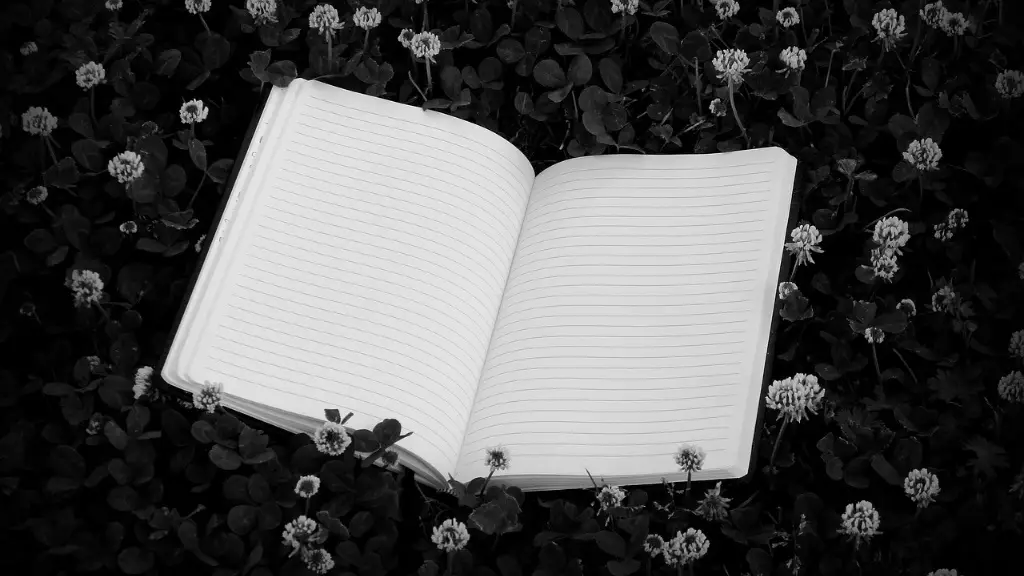English poet Elizabeth Barrett Browning is widely considered to be one of the greatest poets of the Victorian era. Her work spans a wide range of topics, but she is most well-known for her romantic poetry. Much of her writing comes from her own experiences of love and loss in her personal life, and her work is often praised for its passionate expression.
Barrett Browning’s most famous poem is ‘Sonnets from the Portuguese’, a series of 44 sonnets written in response to her husband Robert Browning’s intense expressions of love for her. The poem is a deeply intimate exploration of the power and intensity of their love, and is known for its passionate and romantic tone. In one of the sonnets, Barrett Browning wrote “How do I love thee? Let me count the ways.” This has now become one of the most famous declarations of love in the world.
In addition to romantic poetry, Barrett Browning also wrote about more serious topics such as social injustice, political oppression and gender inequality. Some of her most well-known works addressing these topics are ‘Aurora Leigh’ and ‘Casa Guidi Windows’. ‘Aurora Leigh’ is considered to be one of the most important works of feminist literature of the Victorian period, and is a long narrative poem addressing issues of women’s independence and education in the 1800s.
Unlike many other writers of the time, Barrett Browning was a strong advocate of the abolition of slavery. Her works often portrayed characters who showed promoting the oppressive nature of slavery. One of her most notable works was ‘The Runaway Slave’, a poem written in 1844 about a runaway slave who was being hunted by slave catchers. The poem is considered to be one of the earliest works of Black liberation literature written by a White person.
Today, Barrett Browning’s work is still highly-regarded by literary experts. Dr. Emily Cockayne, an expert in Victorian literature at the University of Manchester, says: “Elizabeth Barrett Browning’s writing can be seen as a prototype of modern feminist poetry. She wrote about important topics with a powerful and passionate voice, and her work still resonates to this day.”
Death and Memory
Barrett Browning also wrote extensively about death and the memories of loved ones. Much of her work is influenced by the deaths of her siblings, and she often explored ideas of loss and grief. One of her most famous works on the subject is ‘Cry of the Children’, a powerful poem which paints a bleak picture of the children she saw in the factories of her time, who had no joy in their lives and no hope of a better future.
Her work on death and memory also influenced her work ‘A Musical Instrument’, which was about the death of her young brother. In the poem, she explores the idea of how memories of a loved one can remain in an object or piece of music.
Barrett Browning’s work still serves as an inspiration to many writers and poets today. The themes of love, loss, grief, and memory found in her work are things that all readers can relate to, and her passionate writing style has had a lasting impact.
Romanticism
Barrett Browning has been a major influence in the Romantic Movement. Her works often portray a deep understanding of human emotions, and her poetic style is often praised for its passion and intensity. Many of her poems explore the nature of love, and her work is known for its romantic and sentimental tone.
The themes of romance and love found in her work are often reflected in her own life experiences. Her relationship with her husband Robert Browning was famously passionate; and it is said that their love letters have become some of the most beautifully written pieces of love correspondence in history.
Her influence on the Romantic Movement can also be seen in her use of symbolism and metaphor. For example, in her poem ‘How Do I Love Thee?’, she uses a variety of symbols such as stars and the sea to express love and emotion.
Social Issues
In addition to romantic and sentimental topics, Barrett Browning also wrote extensively about social and political issues. Her works often address topics such as gender inequality, slavery, and poverty.
For example, in her poem ‘The Runaway Slave’, she tackles the issue of the oppressive nature of slavery. She also explores issues of political oppression in her poem ‘A Curse for a Nation’, which contains some of her most powerful and emotive writing.
Barrett Browning was also a vocal advocate for education for women and girls, and her work often explored the conditions suffered by poorer members of society. In her poem ‘The Cry of the Children’, she paints a harrowing picture of the plight of the working children in factories of her time.
Language and Imagery
Barrett Browning’s work is also recognised for its powerful use of language and imagery. Her clever use of symbolism and metaphor allows her to explore complex themes in her poetry and give her audiences a deeper understanding of her words.
She also had a unique style of writing that was appreciated by many of her contemporaries. Her use of rhyme, rhythm and alliteration allow her to create beautiful and emotive pieces of poetry.
Barrett Browning was innovative with her use of language, and her writing style has influenced many poets and writers of the past. Her use of metaphor and imagery have been widely admired, and many poets have described her work as revolutionary and inspiring.
Legacy
Barrett Browning’s works continue to be admired and studied today. Her works are widely studied in literary classes and her influence on the literary canon is still evident.
In recent years, she has been recognised for her championing of social causes and her passionate and emotive writing. Her works on love and loss remain timeless, and still resonate with many readers around the world.
Today, Barrett Browning’s work is seen as a prototype for modern feminist poetry. Her passionate writing style and her exploration of complex topics have made her one of the most influential poets of the Victorian era.





